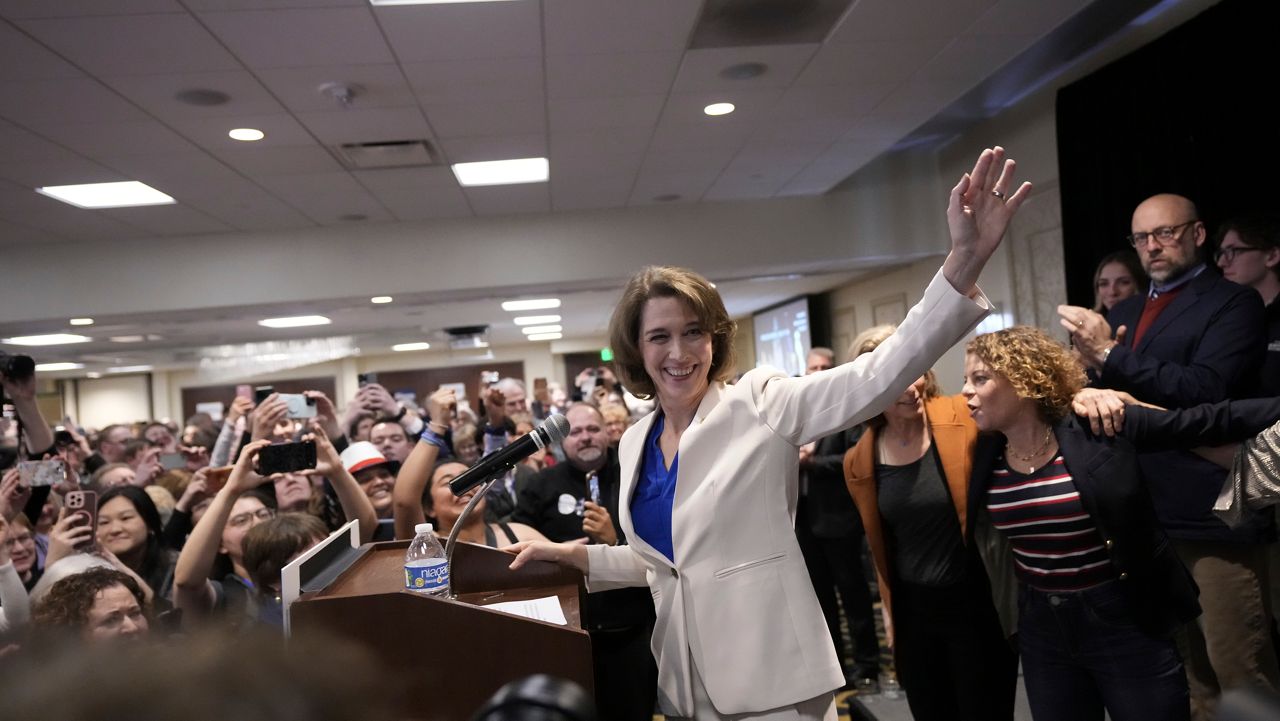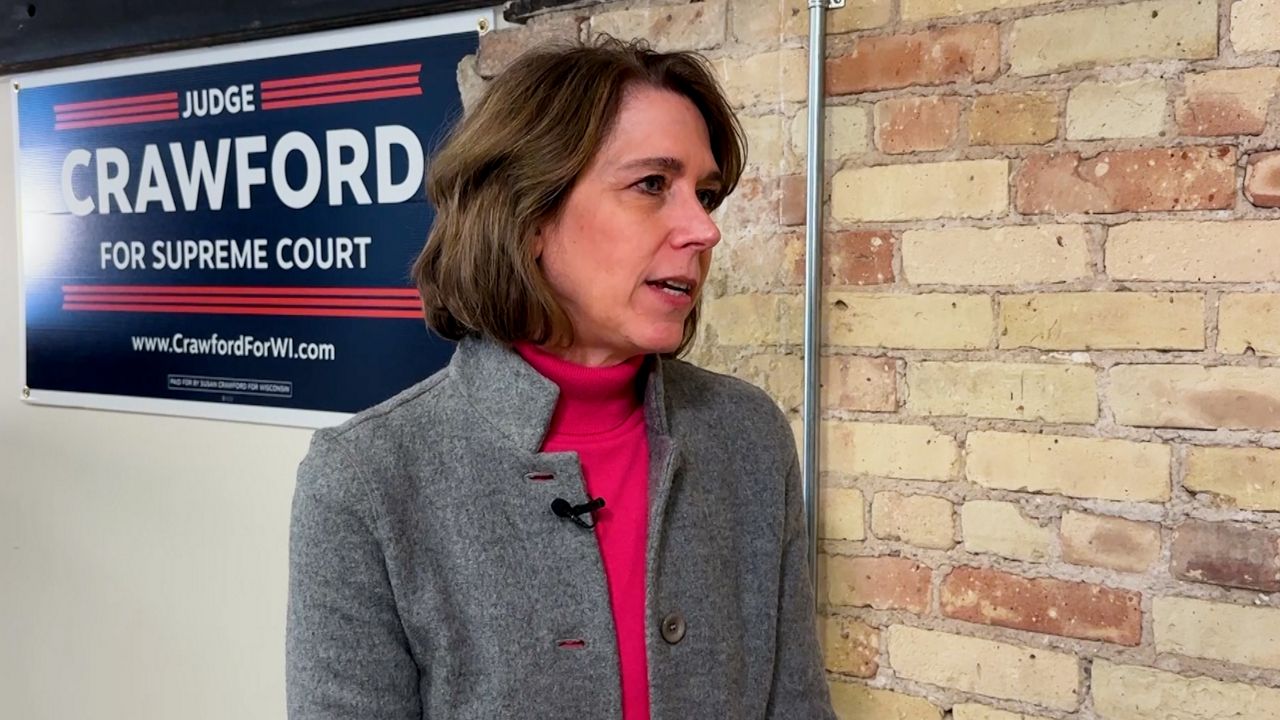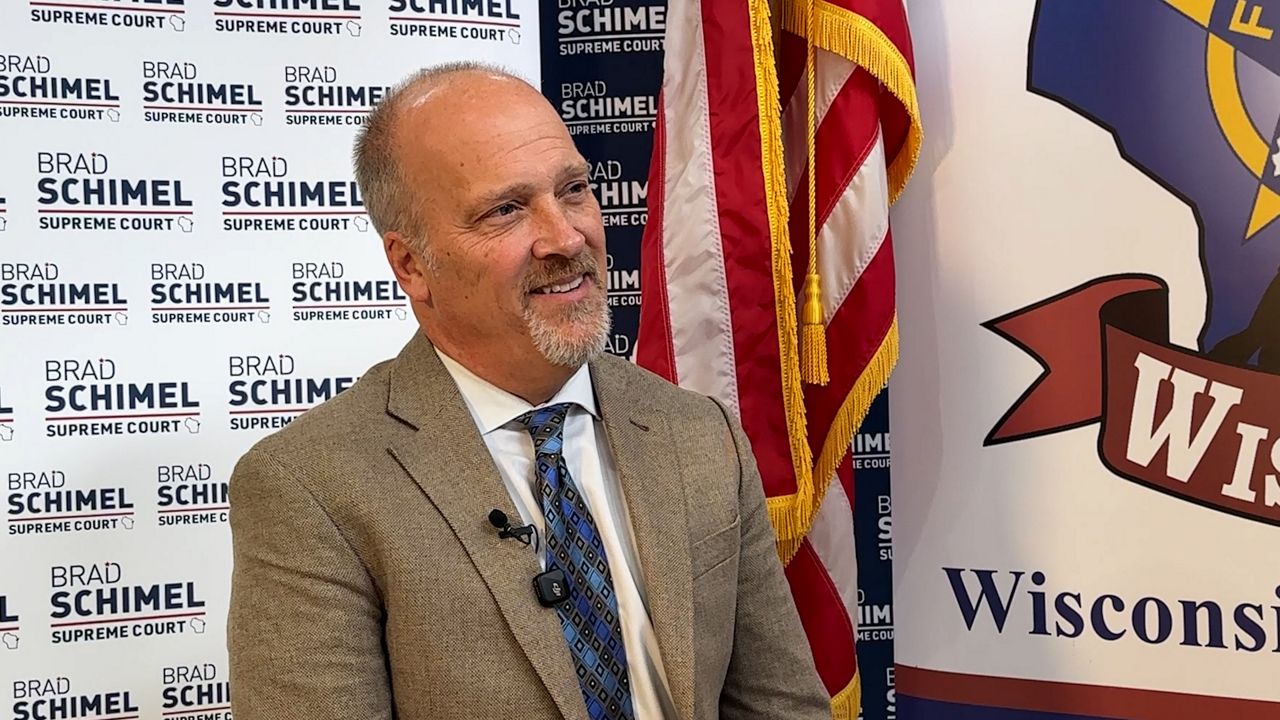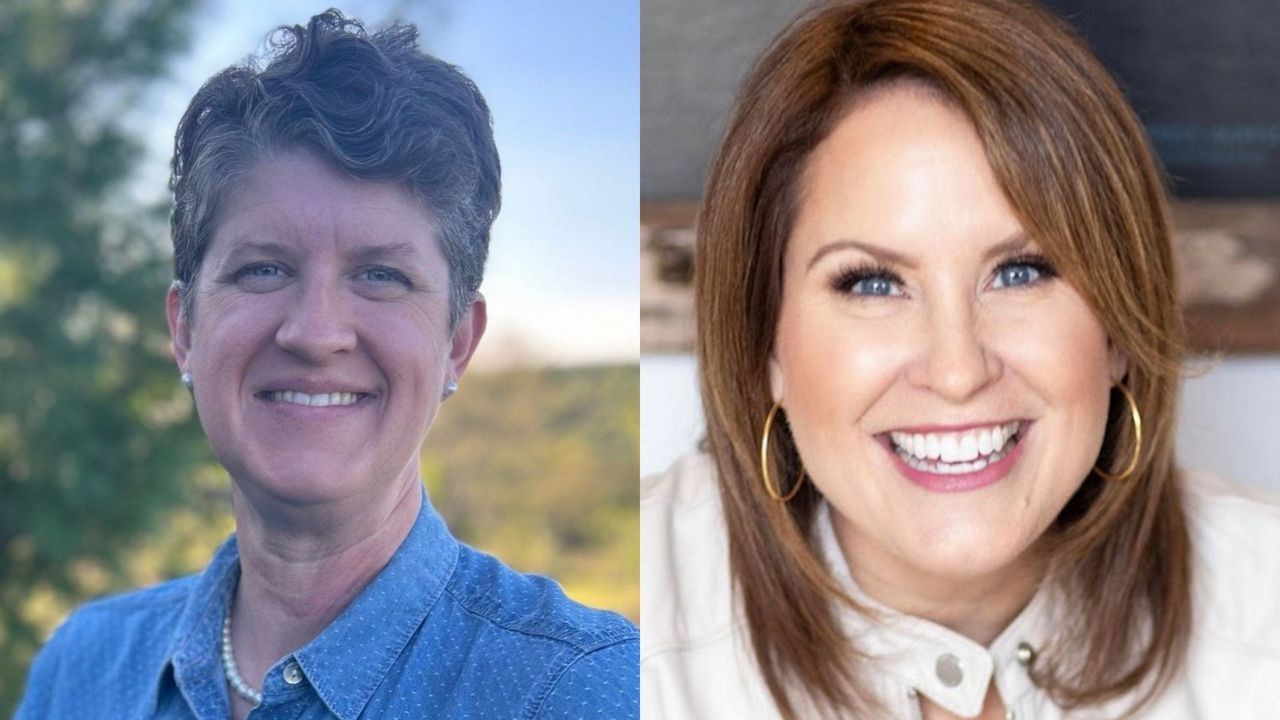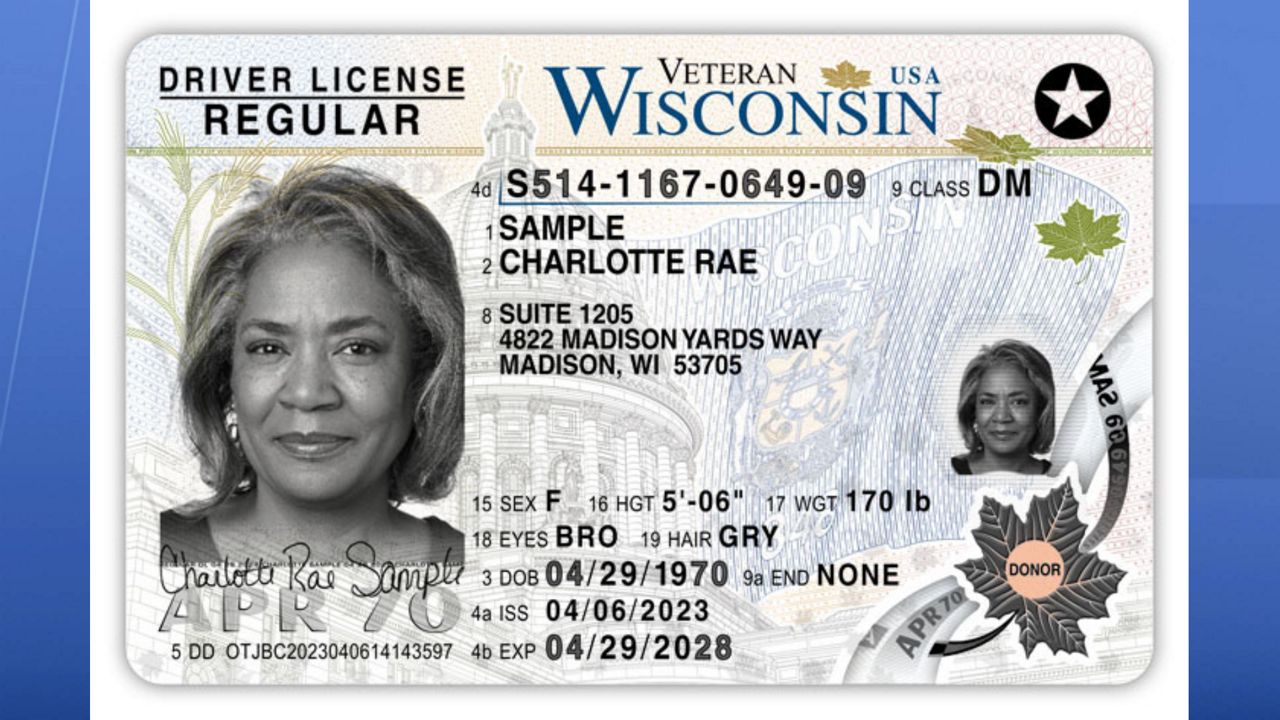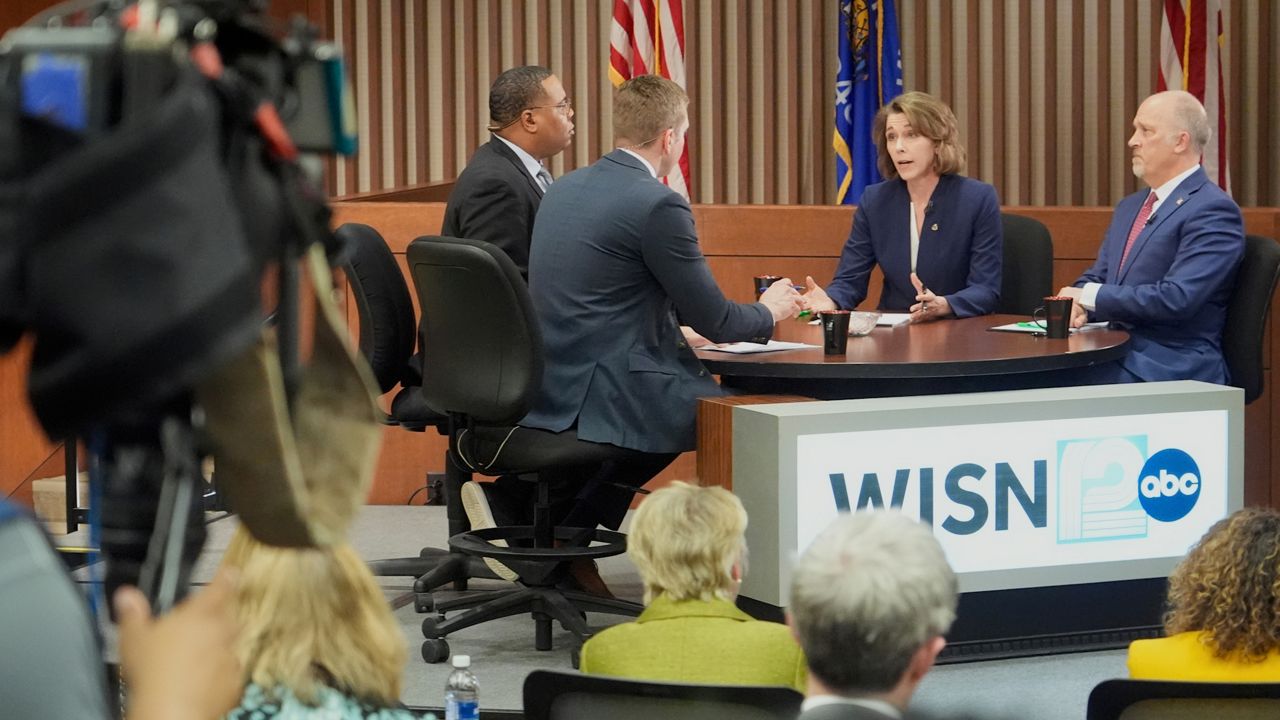MADISON, Wis. — In less than a week, the field of candidates vying to lead Wisconsin’s Department of Public Instruction (DPI) will be narrowed with the February primary election fast approaching.
Incumbent Jill Underly is among a field of three candidates running for the post, including incumbent Sauk Prairie School District Superintendent Jeff Wright and educational leader Brittany Kinser.
The top two vote-getters in the upcoming Feb. 18 primary will move on to the April Spring Election in what is technically a nonpartisan race.
Since 1999, Underly has worked in all facets of public education. From elementary school principal to middle and high school teacher, as well as school district superintendent and university academic advisor.
Most recently, she has served as Wisconsin’s State Superintendent after winning election in 2021.
“I love this question because, for me, it's really about the kids and it's really about the momentum. So, I came into office in 2021, it was COVID, and so, like a lot of places, [we] were just kind of struggling to get going and getting things back on track. I'm proud to say that since I took office, Wisconsin now has one of the highest graduation rates in the country, and we are in the highest graduation rates in our state history, and it's because we're investing in things that matter. So, despite not getting enough resources from the state, the resources that we do have, we know what works,” Underly said.
“We're investing in mental health, investing in career and tech ed, doing what we can to support our workforce, and we're seeing kids engaged. And so, we see these high graduation rates. We've also moved up, I suppose you could say, in our national ranking when it comes to education. When I took office, we were 13th. As you know, [how] 2020 went, now we're sixth in the nation for education. So, for me, it's about: we know what works, and we need to keep doing it. And for me, it's always been about the kids. And so, that's what I'm going to keep my focus on,” she added.
In 2024, Wisconsin voters approved a record number of referenda thereby raising property taxes to fund their local schools.
“We can't sustain our school district operations on referendum. It's not fair, it's not right. It's unfair to the kids, and it's unfair to the communities and the taxpayers that have to go through this will-they-won't-they kind of stuff when it comes to approval,” Underly explained.
According to an analysis by Wisconsin Policy Forum, school districts across the state received $4.4 billion in new funding from referendums last year.
“So, the budget that I proposed for $4 billion, it's a lot, but it's what our schools need. And what we saw in November was our schools were asking for referendum because they need it. They're not going to ask for any other reason — they need it. It's what their kids need. And as a result, the majority of our communities responded in a positive way, but we can't sustain that, so [if] that's what we have to do, it's what we have to do,” she said.
“I would tell people that we didn't lower standards full stop. We did not lower standards,” Underly stated. “You don't get to sixth in the nation for education by lowering standards. What we did was we raised standards in math and science. We added standards for career and tech ed. We added a literacy score, and as a result of making changes, you have to change the grading scale. And we changed the grading scale to match the test, which is what our teachers wanted. We had teachers come in; they're the ones that made the revisions. They're the ones that said, ‘Let's actually have a grading scale that measures what the kids are learning.’ And so, our teachers were the ones that came to me and said, ‘Can you do this?’ And it was very transparent. Despite what everybody else says, it was transparent.”
Republican lawmakers have recently begun an effort to revert to the standards used during the 2019-20 school year that were originally put in place by now Gov. Evers, who was serving as State Superintendent at the time.
DPI has defended the changes it said were meant to address a disconnect between what teachers experienced in the classroom and the terminology used to describe student success.
“Where I think a lot of the criticism is, or the confusion might be, when we change the grading scale to match the test, the bandwidths of where the minimum and the maximum for the different levels were lower than what they had been previously, the previous scale was aligned to an entirely different test. And so, for me, it seems like it is complicated, let's just be honest. But it also to me, it's like really simple. I have the highest confidence in our teachers. I'm always going to do what's best for kids, and it's just really harmful to the conversation about public education to imply that we would do something such as lower standards. We did what's best for kids. So, now we can actually measure what kids are learning, so that we know where they need support and where they need additional challenges, so that we can grow, so that they can grow. And like I said, we're not where we are nationally speaking, with the highest graduation rates in our history, and then also being sixth in the nation, if you're going to do things that are going to be harmful to kids’ learning,” she added.
“We are supportive of any measures that we can to increase school safety in our schools, and the budget that I proposed invests more in mental health so that we can make sure that kids have more social workers and access to mental health support, anti-bullying programs in their schools,” Underly said. “We also are giving school districts the flexibility to make those local decisions if they need to make any improvements to their buildings. So, what we proposed in the budget is an opportunity for school districts to levy for additional taxpayer support to put in secure entrances, or update their security, or update their software to lock doors, whatever it might be, or to invest in personnel if they wanted to have more social workers or school psychologists, whatever it would take locally, but giving them that flexibility, instead of having to go to referendum right now. Their only recourse seems to be if they need the funding to have to go to referendum and that's not fair, because every school, every community, wants their kids to be safe, and we shouldn't leave it up to whether or not people can feel they can. You know, they have to pit neighbor against neighbor to see if they're if they're deserving or not.”
In 2024, the Wisconsin Dept. of Justice’s Office of School Safety reported a 40% increase in tips regarding potential threats in districts across the state.
“I am 100% against school vouchers, and the reason I'm against it is because I don't feel that we should be taking taxpayer dollars and investing it in private schools that are not accountable to the same measures that public schools have to meet. So, I'm against investing more in private school vouchers, and I'm against expanding it. One of the reasons you see such large referendums, especially in our urban areas, is because they are transferring hundreds of millions of dollars a year to support unaccountable voucher schools. So, let's invest in the system that takes all kids and supports all kids. Those are the systems in the schools that we need to be putting our money in, which is our public schools,” Underly said.
“We are taking the measures. I'm the only state superintendent that has ever held Milwaukee accountable when it comes to this type of stuff. We withheld money from them to make sure that they got back on track, and I am happy to say they are back on track. We are making progress in that area,” Underly responded.
Last year, MPS was months behind on submitting key financial data to DPI, which prompted questions and concerns from Milwaukee taxpayers and parents with children in the district.
“I'm proud of the efforts that they've made, but how do you stop something like this from happening again? Like I said, I mean, we are a regulatory agency, and so we have had our eyes on it. We were the ones that held them accountable for it, but we really need to look at the resources these school districts, especially the very large school districts, I mean, the reporting requirements are incredible, and they don't have enough personnel, because we've had to have so many cuts to different parts of our operations because we're not getting the funding that we need. And so, we need to make sure that our schools are well resourced, so that they can hire staff, and that we can pay the staff so that they will stay and not walk off with all the institutional knowledge, and then we were back in that situation again. So, these are really complicated reporting systems, and our school districts need the resources so that they can do it. We can't be cutting positions. Usually, the first things cut are administrative positions, but we have to realize that they're there for a reason, and a lot of it has to do with monitoring and accountability purposes,” she added.
“Going into the next four years, I'm really excited. There's a lot of uncertainty, especially at the federal level, and I've been the person who has been standing up for all kids in Wisconsin,” Underly said. “When you look at some of these federal executive orders that are coming through, it's leaving a lot of chaos in their wake, whether it's, you know, Head Start funding, or whether it's how do we protect immigrant children in our schools? My agency and my leadership has been that reassuring guidance to our school districts, cutting through a lot of the stuff, I suppose, if I want to keep this PG, and then making sure that our schools know what they can and can't do and how they can protect kids, because at the end of the day, it's about kids, it's about our future, and that's why I'm here, is because I care about kids and our future in Wisconsin.”






